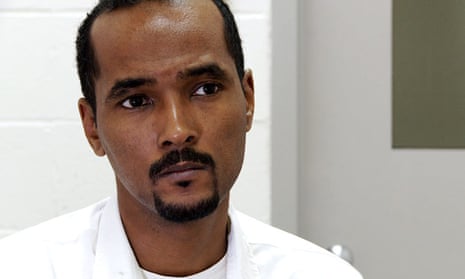Reggie Clemons, a Missouri prisoner who has spent 22 years on death row for the 1991 rape and murder of two sisters, has had his convictions thrown out by the state’s highest court on grounds that he was denied a fair trial through prosecutorial misconduct.
The supreme court of Missouri voted 4-3 on Tuesday to vacate Clemons’ murder convictions and remove him from death row. The ruling was the culmination of an epic six-year legal battle in which the prisoner sought to prove that prosecutors had violated his constitutional rights by withholding evidence at trial that his police confession had been beaten out of him.
The ruling gives the state of Missouri 60 days to decide whether to retry Clemons, 43, for acting as an accomplice in the murders on 5 April 1991 of Julie and Robin Kerry. The attorney general’s office on Tuesday night told the Guardian it was reviewing the court’s decision and gave no indication of what its next move would be.
The sisters were pushed from a bridge into the Mississippi river and drowned, though Robin’s body was never found. On the night of the murders the sisters had been on the bridge with their cousin Thomas Cummins.
They met a group of four young men – Clemons, then aged 19, Marlin Gray who was executed in 2005, his cousin Antonio Richardson who is serving a life sentence, and Daniel Winfrey who negotiated a plea deal and was released in 2007. The case was highly racially charged as Clemons, Gray and Richardson were black, while Winfrey, the Kerry sisters and Cummins were white.
Clemons’ mother Vera Thomas said that she hoped the state would now fully exonerate her son. “This has been a 24-year fight for justice. I’m lost for words,” she said.
She added that in the wake of the dismissal of her son’s murder convictions, she recalled the experience in 2009 in which Clemons came within 12 days of being killed by lethal injection. A stay of execution at that point triggered a special review into the case that was only resolved on Tuesday with the supreme court decision.
Three years ago the Guardian published a series of investigative articles on the case in which the glaring legal problems with Clemons’ prosecution were disclosed. The series identified 21 discrepancies in the way the prosecution unfolded, including the fact that the Chain of Rocks bridge across the Mississippi straddles the boundary between Missouri and Illinois and had the spot from which the sisters were pushed been just a few feet away in Illinois, which abolished the death penalty in 2011, Clemons would not have been facing execution.
The Guardian also highlighted witness testimony that Clemons had displayed signs of bruising on his face soon after he was arrested for the Kerry murders. That evidence, and the fact that it was not disclosed to the defendants’ lawyers before trial, was a key part of Tuesday’s ruling to cast down his murder convictions.
The supreme court’s chief justice, Patricia Breckenridge, who wrote the ruling, catalogued what she said was “substantial evidence” that in the run-up to the Clemons trial, state prosecutors had suppressed evidence that he had physical signs of bruising on his face. “The record includes substantial, credible evidence that Mr Clemons’ confession was coerced by physical abuse inflicted by the police that would require that his confession be suppressed.”
Joshua Levine, a lawyer with Simpson Thacher & Bartlett who represented Clemons during his prolonged legal challenge, said that the court had upheld the prisoner’s constitutional right to a fair trial. “That is all he’s ever sought from the beginning.”
Levine said that the ruling struck a significant blow in the fight for fair trials. “It is fundamental to the nature of a fair trial that a defendant’s coerced confession cannot and should not be used against him.”
Despite the dramatic turn of affairs, Clemons will not be a free man any time soon. In addition to the 60-day period, he is also serving a consecutive 2007 sentence for assaulting a prison guard.
The Guardian understands that the supreme court judges had some difficulty in reaching their decision. The panel of seven judges was reduced to six after one member recused himself from the case, and the remaining judges were then evenly split three against three.
The deadlock was only broken recently when a replacement seventh judge was appointed to the court specifically to bring the Clemons deliberations to a conclusion.
